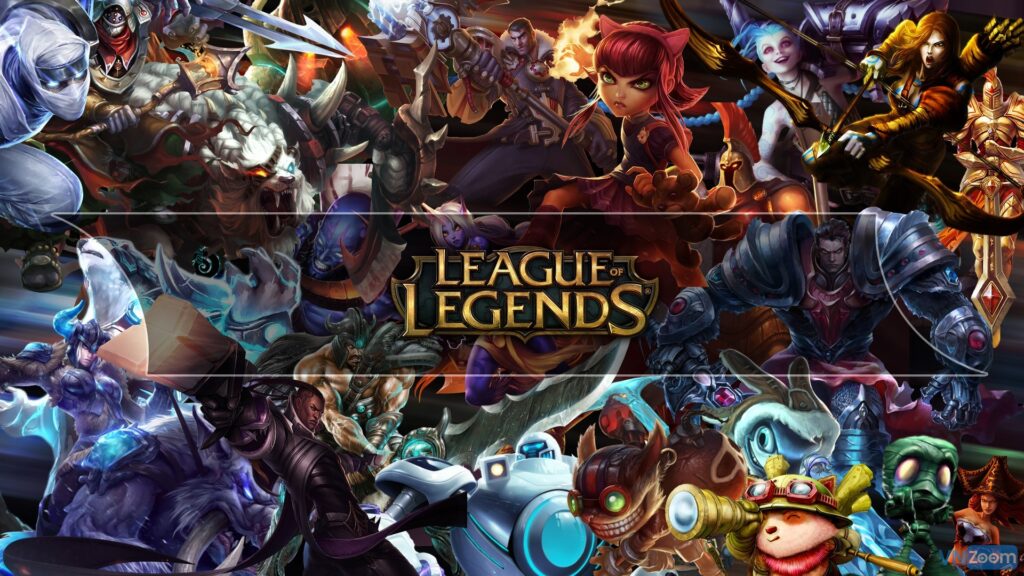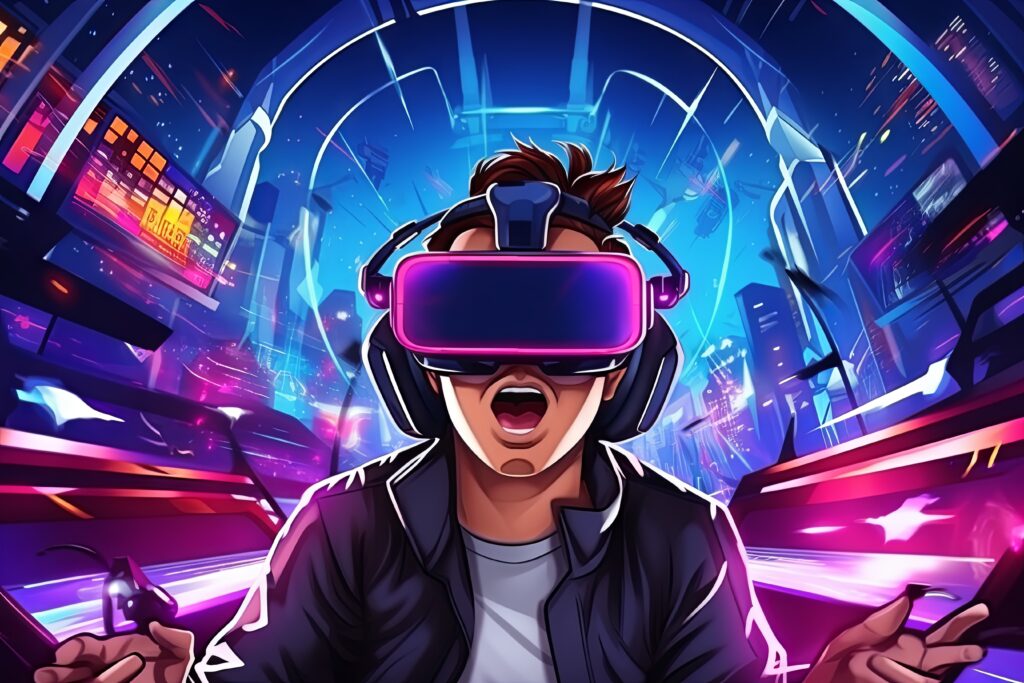Esports Unveiled
Competitive gaming, a term that has gained considerable prominence over the past two decades, refers to organized video game contests conducted at professional levels. Emerging in the late 20th century, its origins can be traced back to video game competitions where players showcased their skills in head-to-head matchups. As video game technology advanced and internet bandwidth expanded, this phenomenon blossomed, transforming a recreational activity into a legitimate profession and entertainment industry.
Today, this gaming sphere encompasses a variety of genres, including first-person shooters, real-time strategy games, and multiplayer online battle arenas. Popular titles such as League of Legends, Counter-Strike: Global Offensive, and Dota 2 have established massive followings and cultivated vibrant communities. This growth is reflected in the ever-increasing demographic of players and viewers, with millions participating in tournaments and streaming events worldwide. Back in 2023, estimates showed over 500 million enthusiasts globally—a figure that has likely surged further by 2025, setting the stage for even greater expansion in the years ahead.
Major tournaments and leagues have become integral to the culture of competitive gaming, attracting unprecedented levels of viewership and sponsorship revenue. Events such as The International, the League of Legends World Championship, and the Overwatch League are not merely contests; they are grand showcases that draw in audiences comparable to traditional sports events. The significant financial investments from various stakeholders, including gaming companies, media outlets, and even traditional sports teams, signify the critical importance of this sector in modern entertainment. For a deeper dive into how these events captivate audiences, check out this overview of gaming tournaments.
Current statistics indicate a rising trend in both earnings and viewership within the gaming landscape. The projected growth suggests a bright future, as this industry continues to solidify its status as a dominant force in entertainment, setting the stage for further innovations and developments in the years leading up to 2025.
From 2023 to 2025: The Foundation of Competitive Gaming
Since 2023, the realm of competitive gaming has evolved significantly, transforming into a dominant force within mainstream entertainment. The audience metrics illustrate this change, with millions of fans tuning in to watch gaming events across numerous platforms. Recent statistics suggest that global audiences have surpassed 600 million, showcasing a substantial increase driven by engaging platforms like Twitch, YouTube, and emerging streaming services. This remarkable growth reflects the increasing acceptance of this scene, marking the transition from niche communities to a recognized cultural phenomenon—setting the stage for even greater strides by 2025.
Popular titles such as League of Legends, Dota 2, and Counter-Strike: Global Offensive continue to dominate the landscape, while newer contenders like Valorant and Apex Legends are capturing the interest of avid gamers and viewers alike. Major tournaments, including The International and the League of Legends World Championship, have reached unprecedented prize pools of millions of dollars, highlighting the competitive nature and financial viability of this field. These tournaments not only foster intense competition but also generate significant revenue streams, attracting sponsorships from leading brands looking to capture the attention of a diverse audience—a trend likely to amplify by 2025.

The demographics of gaming fans are notably varied, spanning age groups predominantly from 18 to 34. This demographic is characterized by a tech-savvy nature and a keen interest in digital entertainment. Industry experts emphasize that this audience is more engaged than traditional sports fans, often interacting with content through social media and participating in online discussions surrounding their favorite games. Furthermore, the integration of merchandising has augmented revenue avenues, with fans increasingly purchasing apparel, accessories, and in-game items related to their favorite teams and players. The landscape of competitive gaming continues to evolve, suggesting that it will remain a key player in the entertainment industry and pave the way for exciting developments by 2025.
Technological Advancements Shaping Esports
The landscape of competitive gaming is poised for significant transformation driven by rapid technological advancements. One of the most impactful innovations influencing the evolution of this scene is augmented reality (AR) and virtual reality (VR). These technologies are set to offer players and spectators immersive experiences that redefine traditional gameplay and viewership. VR can transport players into digital arenas where they can interact within a 3D space, thereby enhancing skill development and tactical execution. Meanwhile, AR integrates digital information with the real world, allowing for interactive overlays that enrich the viewer’s understanding of in-game strategies and player movements.
Another groundbreaking advancement is the rollout of 5G technology, which promises faster and more stable internet connectivity. With significantly reduced latency, players can experience real-time interactions that are crucial for competitive success. This advancement is expected to improve the online gaming experience by minimizing lag and ensuring smoother transitions during gameplay. Furthermore, 5G capabilities will likely enhance spectator engagement by enabling high-definition streaming and cloud gaming solutions, allowing audiences to participate in events seamlessly from a variety of devices.

Artificial intelligence (AI) is also revolutionizing the gaming sector by optimizing both player performance and viewer interaction. AI systems are capable of analyzing player statistics and identifying patterns that can enhance training regimens. Additionally, AI-driven bots can engage with players and fans in real time, fostering community interaction and delivering personalized content. As these technologies continue to evolve, they are expected to play a central role in tournament production, offering innovative broadcasting styles, enhanced statistics visibility, and compelling narratives that captivate audiences. Learn more about how AI is shaping gaming at this AI in gaming resource.
As this industry continues to evolve, embracing these technological advancements will be critical for maximizing player engagement and enriching viewer experiences. We can anticipate that the integration of these innovations will create new platforms for participation, inviting a broader audience to join the dynamic world of competitive gaming.
The Growth of Esports Education and Career Opportunities
The burgeoning field of competitive gaming has prompted a significant evolution in educational offerings and career prospects. As the popularity and legitimacy of this sector continue to rise, institutions of higher education are increasingly establishing dedicated programs focusing on gaming management, coaching, and other related fields. This trend is not merely a response to the growth of this arena; it represents a recognition of gaming as a professional discipline and a viable career path.
Several universities across the globe now offer specialized degrees in gaming management. These programs equip students with the necessary skills to navigate the complexities of the industry, including strategic planning, marketing, and event management. Additionally, they often incorporate hands-on experiences through internships or partnerships with professional teams and organizations, enabling students to gain practical insights into the field.
Moreover, the scope of career opportunities in this domain is expanding well beyond traditional roles associated with professional gaming. Today, aspiring professionals can explore various career paths that encompass marketing, event management, broadcasting, and content creation. For instance, marketing professionals are tasked with promoting gaming events and teams, while event managers coordinate the logistics of large-scale tournaments. Content creators, on the other hand, engage with fans through streaming platforms and social media, fostering community and building brand loyalty.
As the gaming ecosystem matures, the importance of developing a skilled workforce becomes increasingly evident. Educational institutions and industry stakeholders must collaborate to foster talent that understands not only the gaming aspect but also the business acumen required to push the industry forward. By nurturing a new generation of professionals with diverse skill sets, this sector can ensure its growth trajectory continues unabated, fortifying its position as a significant player in the entertainment landscape by 2025.
Diversity and Inclusion in Esports
As the competitive gaming industry continues to flourish, promoting diversity and inclusion has become a critical focus for organizations and stakeholders. The gaming community, much like other sectors, has faced challenges in representation, particularly for women, racial minorities, and other underrepresented groups. Recognizing this disparity, various initiatives have emerged to foster a more inclusive environment within this field.
Many organizations are actively working to develop programs aimed at encouraging participation from these diverse groups. This includes implementing gender equality initiatives and creating platforms that showcase talent from various backgrounds. For example, organizations are hosting tournaments specifically for women, providing a supportive space where they can compete and gain visibility. Additionally, mentorship programs are being established, connecting aspiring gamers from underrepresented communities with experienced professionals who can guide them through the complexities of the industry.
The significance of community and support networks within this arena cannot be overstated. These networks not only offer encouragement but also foster collaboration and amplify the voices of those who may have been marginalized. Building connections among diverse players cultivates an ecosystem where innovative ideas can thrive. As a result, the creative landscape of competitive gaming benefits from the varied perspectives and experiences that a diverse community brings. This diversity enhances problem-solving and drives the development of more engaging content, further appealing to a broader audience.
Moreover, a commitment to inclusivity in this industry is crucial for its sustainability. By embracing diversity, organizations can create a culture that capitalizes on the strengths of varied backgrounds, resulting in a more dynamic and resilient industry. As we move towards 2025, it is clear that the push for diversity and inclusion will play a pivotal role in shaping the future of competitive gaming, promising not just a fair playing field, but also a more vibrant gaming culture overall.
Financial Forecast: Esports Revenue Projections for 2025
The global esports industry is on a remarkable trajectory, with revenue projections indicating significant growth by 2025. Since 2023, the esports market has continued expanding, fueled by diverse revenue streams like sponsorships, media rights, merchandise sales, and ticketing. If current trends continue, total esports revenues could surpass $1.5 billion by 2025, a milestone that emphasizes the increasing influence of competitive gaming on the broader entertainment industry.

Sponsorship is expected to remain one of the dominant revenue sources, contributing a substantial portion of the overall income. Major corporations, recognizing the immense popularity and viewership of esports, are investing heavily in team sponsorships and event partnerships. According to industry reports, sponsorship revenue alone is projected to reach approximately $800 million by 2025, accounting for more than half of the total market revenue. This investment reflects a strategic shift within marketing departments, as brands seek to engage with younger demographics through innovative platforms.
In addition to sponsorships, media rights are becoming an increasingly vital component of the economic landscape surrounding esports. With numerous streaming platforms vying for exclusive broadcasting rights, analysts predict that media rights revenue will reach around $300 million by 2025. This trend underlines the transition from traditional broadcasting to digital platforms, enabling wider audiences to access esports events from virtually anywhere.
Moreover, merchandise sales, including apparel and in-game purchases, are expected to yield significant profits as gaming communities grow and evolve. Estimates suggest merchandise revenue might approach $200 million by 2025, demonstrating the symbiotic relationship between players, teams, and their fans.
In conclusion, as the esports industry continues to develop, its financial forecast for 2025 remains optimistic. With diversified revenue streams driving growth, the esports market is poised to contribute not only to the entertainment sector but also to numerous adjacent industries, reflecting a robust economic potential that warrants attention from investors and analysts alike.
The Future of Esports Communities and Fan Engagement
The landscape of esports communities is poised for significant transformation as we move towards 2025. With the ever-increasing popularity of competitive gaming, the ways in which fans engage with their favorite teams and players are evolving rapidly. Social media platforms will continue to play a vital role in fostering community interactions, shaping discussions, and sharing content related to esports. This shift is likely to promote not only engagement but also the growth of smaller niche communities that cater to specific games or genres.
Streaming platforms are now integral to the esports ecosystem, acting as hubs for fans to consume content and interact with teams and players. Innovations such as real-time chat features, live polling during events, and integrated social sharing options will enhance viewer experience. This interaction cultivates a sense of belonging among fans, who are not just passive observers but active participants in the esports narrative. Hosting watch parties for major tournaments can further amplify this engagement—check out How to host a spring sports watch party for tips on bringing fans together. In addition to traditional streaming, the rise of interactive content, including augmented and virtual reality experiences, is set to deepen fan engagement. These immersive technologies will provide unique perspectives on gameplay and enable fans to feel closer to the action.
Furthermore, the concept of virtual events is gaining traction. Organizations are expected to host online tournaments, gaming expos, and fan meetups that transcend geographical boundaries, allowing fans worldwide to partake in shared experiences. Exclusive content, such as behind-the-scenes footage, player interviews, and in-game rewards tailored for specific communities, can enhance the overall fan experience, driving loyalty and passion among supporters. As esports communities continue to expand, organizations will need to explore innovative strategies for maintaining engagement, emphasizing the importance of authenticity and personalization.
Ultimately, as we approach 2025, the evolution of esports communities and fan engagement will depend on the ability to adapt to emerging trends, technologies, and fan expectations. This ongoing transformation will significantly shape the future of competitive gaming.
Health and Wellness in Esports
The esports industry has witnessed substantial growth over recent years, leading to a heightened awareness of health and wellness among players and fans alike. With this evolution, the focus has increasingly shifted towards promoting mental health, physical well-being, and balanced lifestyles within the bustling esports community. The demanding nature of competitive gaming can often take a toll on individuals, making it essential for industry stakeholders to prioritize health education and support initiatives tailored for all participants.
Mental health, in particular, has garnered attention as players face intense pressure, both from competition and the expectations surrounding them. As a response, various organizations are now implementing programs aimed at fostering resilience and providing mental health resources. These initiatives often include seminars, workshops, and direct access to mental health professionals, designed to equip players with the tools they need to manage stress and avoid burnout. Such measures are not only beneficial for professional gamers but also serve as valuable resources for aspiring talent and fans who engage with the esports scene.
Moreover, the importance of physical wellness cannot be overstated. Lengthy gaming sessions can lead to a sedentary lifestyle, often bishops in health issues. To counteract this trend, many teams are integrating fitness routines and training regimens into their schedules. This emphasis on physical activity encourages a more balanced approach to gaming, promoting overall health and enhancing performance. Efforts such as regular exercise, nutrition counseling, and ergonomically designed gaming setups are becoming standard practice as stakeholders consider players’ holistic well-being.
As the esports industry continues to mature, the commitment to health and wellness is evident. The establishment of support systems and initiatives focused on educating players at all levels underscores a collective recognition of the unique pressures faced in this competitive environment. By prioritizing health and wellness, the esports community can pave the way for sustainable growth and foster positive experiences for all involved.
Esports Outlook for 2025
As we look toward the future of esports by 2025, it is evident that this dynamic industry is on a trajectory of unprecedented growth and transformation. Throughout this blog post, we have explored various facets of the esports landscape, including technological advancements, increasing viewership, and the evolving nature of competitive gaming. These elements together paint a comprehensive portrait of an industry that is not only here to stay but is poised to become a significant cultural phenomenon.

One of the key takeaway points is the expanding reach of esports, which is expected to resonate strongly with younger generations, fostering a richer community around gaming culture. Esports is likely to integrate more deeply into mainstream entertainment, bringing along increased sponsorships, media coverage, and a wide range of professional opportunities for players and organizers alike. The collaboration between established sports franchises and esports organizations signifies a strong endorsement of the competitive gaming sector, further legitimizing its status.
Moreover, with technological innovations such as virtual reality and enhanced streaming capabilities, spectators can anticipate a more immersive experience in 2025. This could potentially alter how games are played and experienced, giving rise to new formats and engagement levels. As esports evolves, its influence will likely seep into various sectors, affecting everything from education to digital marketing. These developments could foster a holistic growth path, ensuring that esports remains relevant and innovative.
In conclusion, the future of esports is bright, driven by a combination of grassroots enthusiasm and institutional support. As we approach 2025, stakeholders across the board—from players to publishers and fans—should remain engaged with these exciting changes. The potential for esports to shape cultural narratives and redefine gaming as we know it is immense, paving the way for future generations to embrace this vibrant landscape.





